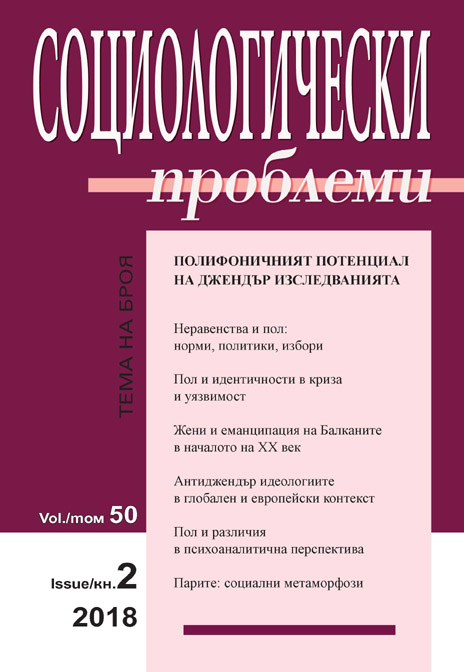Хипохондрични идентичности: Джендър и национализъм в България
Hypochondriac Identities: Gender and Nationalism in Bulgaria
Author(s): Elitsa StanoevaSubject(s): Social Sciences, Gender Studies, Sociology
Published by: Институт по философия и социология при БАН
Keywords: violence against women; ethnic minorities; refugees; “gender ideology”; LGBTI rights
Summary/Abstract: In the perspective of “hypochondriac identities”, this article analyzes anti-gender discourses in Bulgaria which emerged in the last year triggered by the Council of Europe Convention on Preventing and Combatting Violence against Women and Domestic Violence (also known as the Istanbul Convention). Treating these discourses as nationalist (and not just conservative), the article traces their intersection with existing anti-refugee discourses. The first section sketches how out of the left-right fragmentation of the post-socialist political terrain a nationalist consensus emerged, which would provide both a social glue for parties’ crumbling legitimacy and political justification for coalitions across the presumably unbridgeable post-1989 divides of “left” and “right”. The follow-up section tackles the opposition to the Istanbul Convention by the main political parties, both “right” and “left”, as well as by professionally organized interest groups. The common denominator of various anti-gender positions is the fear that introducing “gender“ as a legal term would open the door for LGBTI rights. This alarmism has a strong populist appeal due to still dominant homophobia in Bulgarian society. The final section outlines parallels between the anti-gender and anti-refugee discourses as well as the points where they overlap and mutually amplify in the political positions against the Istanbul Convention.
Journal: Социологически проблеми
- Issue Year: 50/2018
- Issue No: 2
- Page Range: 715-735
- Page Count: 21
- Language: Bulgarian
- Content File-PDF

